Authentic Thịt Kho Tàu – Vietnamese Caramelized Pork Belly
Thịt kho tàu (Vietnamese Caramelized Pork Belly) is classic comfort food of Viet families. Pork belly is slowly braised until it has a beautiful caramel color and becomes so flavorful and tender.
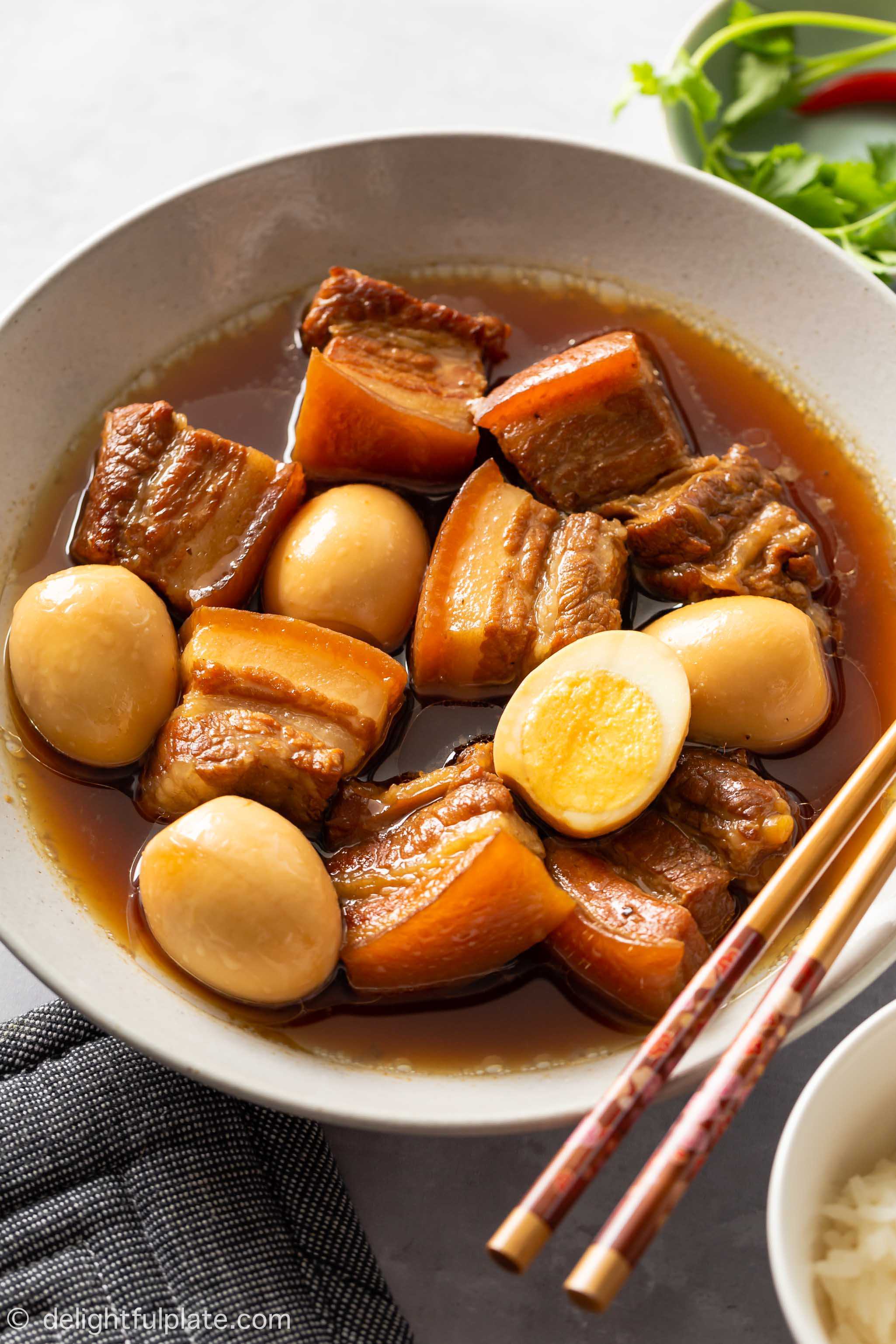
Caramelized pork belly is in the daily rotation of many Vietnamese families. We call it “thịt kho tàu” (or just “thịt kho” for short). When eggs are added to the dish, we will call the dish “thịt kho trứng“. The version with eggs is a must-have in the Lunar New Year feast of Southern Vietnamese people.
Thịt kho tàu is enjoyed in all parts of Vietnam, but there are some slight differences between the Northern and Southern versions.
- Northern version: on the salty side, has less sauce, the braising liquid can be plain water, and the pork belly chunks are often smaller than in the South.
- Southern version: on the sweet side, has more sauce, often braised with fresh coconut juice, and the pork belly chunks are bigger.
We grew up with the Northern caramelized pork belly, but our favorite version, which we’re sharing today, combines the best of the Northern and Southern styles with a perfect balance of sweetness and saltiness.
Recipe Video
In this dish, pork belly is braised with caramel sauce and fish sauce until the meat is flavorful and tender. You can watch how to cook the dish in the video below.
Best Cuts of Pork for Thịt Kho Tàu
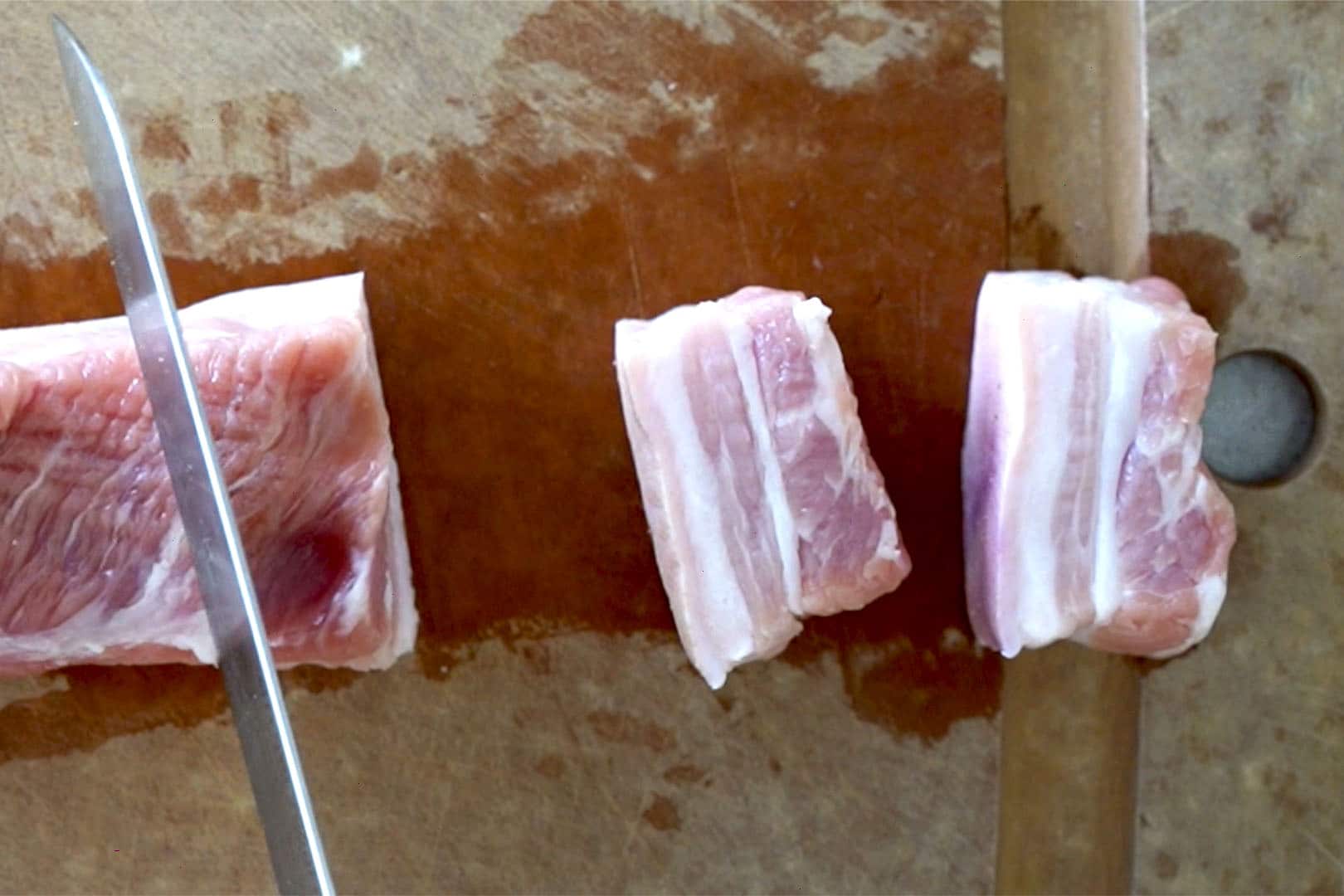
Thit kho tastes best with pork belly. Some people who don’t like fattiness may use other cuts like pork shoulder. Although I avoid pork fat and always discard it when eating, I still choose pork belly for this dish as it will yield the most tender result. Try to find a piece that has more meat than fat.
Related: this lemongrass pork belly recipe will show you a different way to cook this cut of pork if you are interested.
Caramel Sauce
Caramel sauce is an essential component of Vietnamese caramelized dishes such as this traditional cá kho or caramelized salmon. Making this sauce is also the trickiest part of the recipe; otherwise, all other steps are very easy and straightforward.
You will need sugar to make the sauce. In the video, I used golden granulated sugar, which is less refined than white granulated sugar, but there’s no other differences. Vietnamese families always use granulated sugar for this dish. We don’t use brown sugar. Make sure you watch it closely since it can burn really fast and be really careful when adding water.
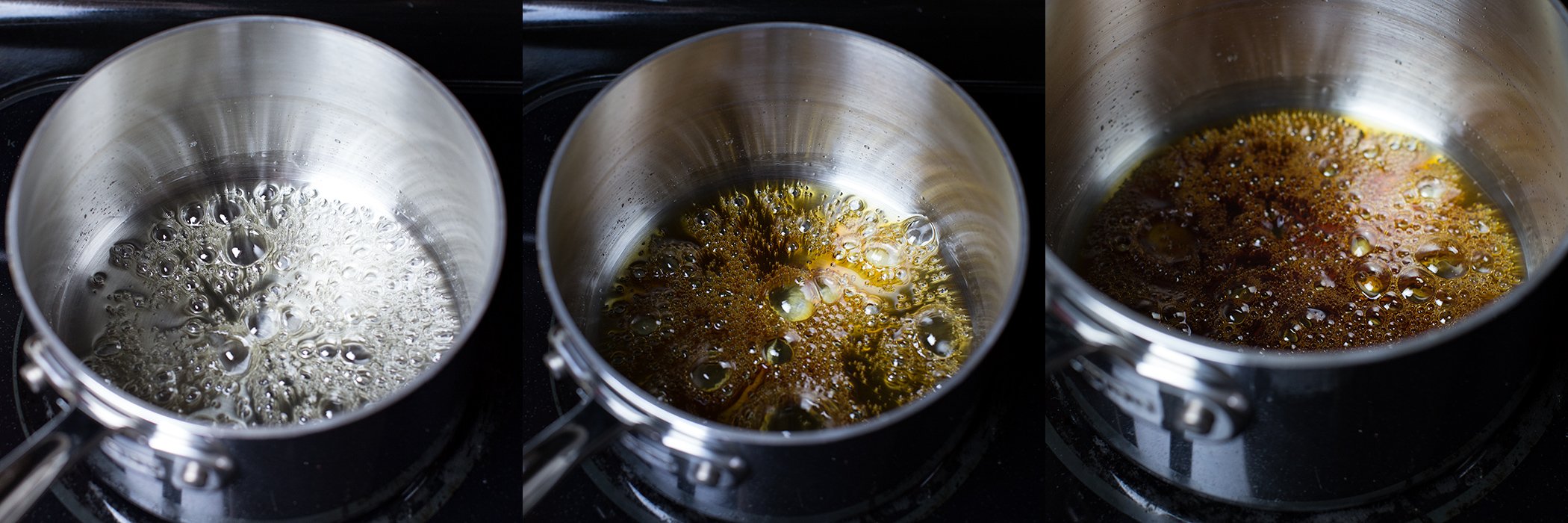
If you want your caramelized pork belly to look lighter or darker, you can use less or more caramel sauce. In case caramelizing sugar sounds too intimidating for you, you may use dark soy sauce instead, as shown in this braised tofu and eggs recipe, which is my vegetarian version of thịt kho trứng.
Eggs
Eggs are optional, but I do enjoy the dish more with eggs. You will need to boil the eggs before adding them to the braised pork belly. Viet families may use either chicken eggs or duck eggs depending on their preferences.
There is another variation of the dish where the boiled eggs are fried until they have a blistered and golden crust before being cooked with the meat. Though it is really on another level of deliciousness compared to simply using boiled eggs, it is kinda a pain to fry those boiled eggs due to the blistering and splashing. You may want to give it a try if you are not afraid of those drawbacks.
How to Store
Surprisingly, this dish can be frozen quite well but without the eggs. You can store the braised pork along with the sauce in Ziploc freezer bags for 1-2 weeks. Though the recipe takes a little over 1.5 hours to cook, you can easily make a big batch and freeze it.
When you want to eat it, thaw and reheat on the stove, at which point you can add some boiled eggs if you want. We tried it ourselves and felt that the flavors were not impacted.
How to Serve
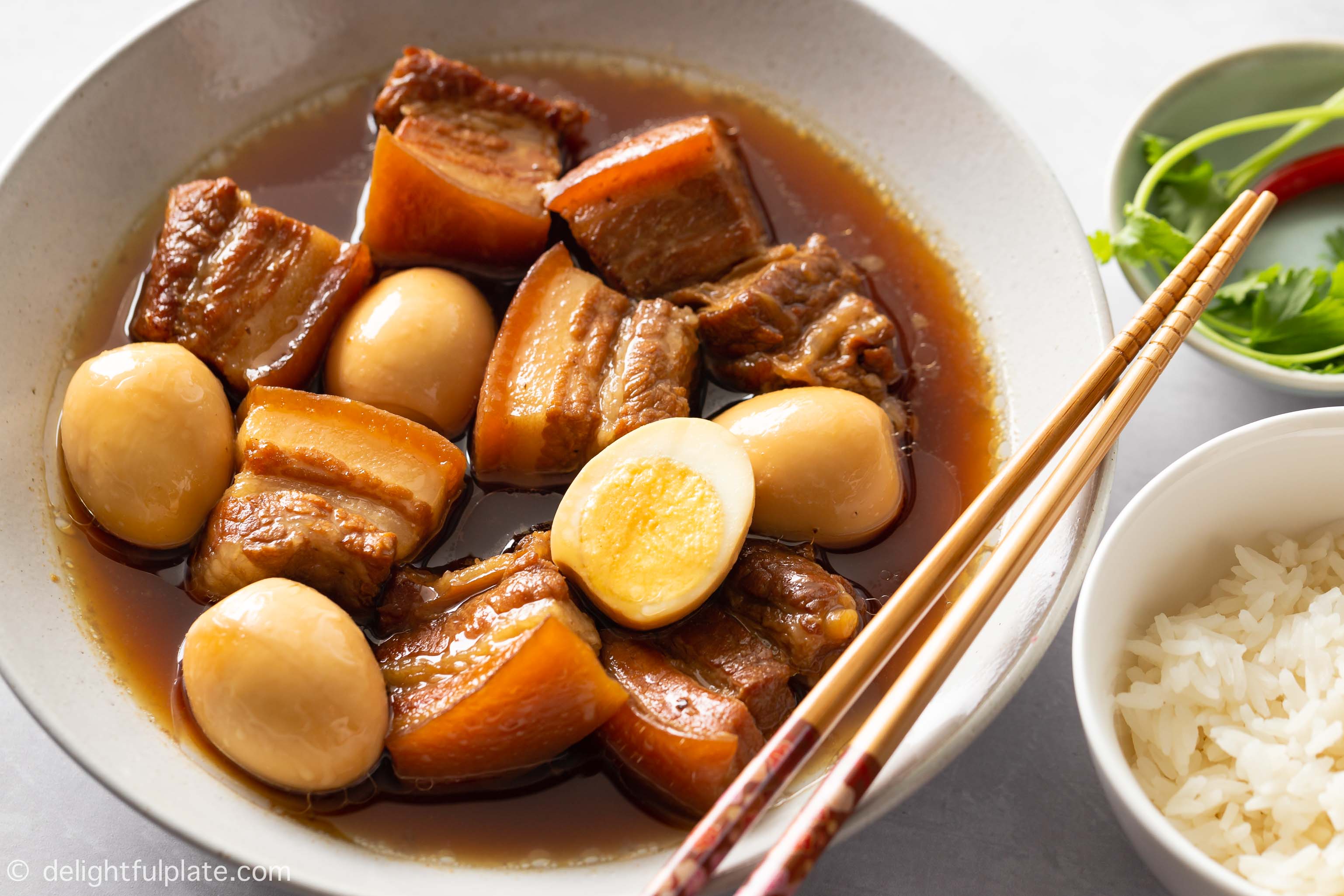
You can serve thit kho with steamed rice for a traditional Vietnamese dinner. Another option is to serve it with steamed sticky rice (such as xoi xeo sticky rice with mung bean), also a classic combination in Vietnam.
Thit kho tau can even be eaten with banh mi. Slice the pork belly and eggs into thinner pieces and stuff inside banh mi. Then drizzle some sauce over and sprinkle some black pepper.
⭐️ I’d love to hear what you think about the dish, so please feel free to leave a comment. New recipes are added every week so let’s connect on Facebook, Youtube, Pinterest and Instagram for the latest updates. You can find my collection of Vietnamese recipes here.
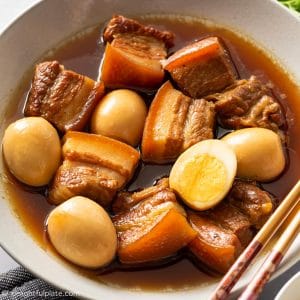
Vietnamese Caramelized Pork Belly (Thịt Kho Tàu)
Ingredients
- 2 lbs pork belly
- 4 garlic cloves, crushed
- 3 shallots, crushed
- 1 teaspoon salt
- 1/2 teaspoon black pepper
- 2 tablespoons granulated sugar
- 3 tablespoons water, divided
- cooking oil
- 3-4 tablespoons fish sauce (more or less to taste)
- 3 cups fresh coconut juice (about 2 coconuts)
- 6-8 eggs (more or less to your liking)
Instructions
- Slice pork belly into 1-inch thick (or slightly thicker) pieces. In a bowl, toss the pork with crushed garlic, shallots, salt and pepper. Set aside at room temperature for 10-20 minutes.
- In a small saucepan, add 2 tablespoons of sugar and 2 tablespoons of water. Bring to a boil, the sugar will fully dissolve. Lower the heat to medium, continue to simmer. You will see a lot of bubbles on the surface. The mixture will then turn from clear to yellow, and get darker as you simmer it. When it has a honey color, reduce the heat slightly. Keep watching closely, until it has a dark caramel color, turn off the heat and carefully add 1 tablespoon of water. Swirl the saucepan (or stir) to combine and remove it from the stove. Set aside.
- Place a heavy-bottomed pot over medium heat and add a small amount of cooking oil. Once the oil is hot, add the pork belly, along with all the crushed garlic and shallots, and the caramel sauce. Stir and cook to coat the pork with the caramel sauce and then add fish sauce. Continue to stir and cook.
- Once the outside of the pork is no longer pink, add coconut juice enough to cover the meat. Bring it to a boil and skim off all the foams, then lower to a simmer.
- Cover the pot with the lid slightly askew and simmer until the pork is almost tender to your liking (about 75-80 minutes). You can give everything a stir once in a while for even cooking if you want.
- While braising the pork belly, boil the eggs so that they are just about to reach hard-boiled. Place the eggs in cold water to cool down, and then peel them.
- Once the pork is almost tender, add the eggs (make sure they are surrounded with the braising liquid). Cover and simmer for about 10 more minutes.
- Transfer the caramelized pork belly and eggs along with the sauce to a shallow serving plate. Serve hot with white rice.

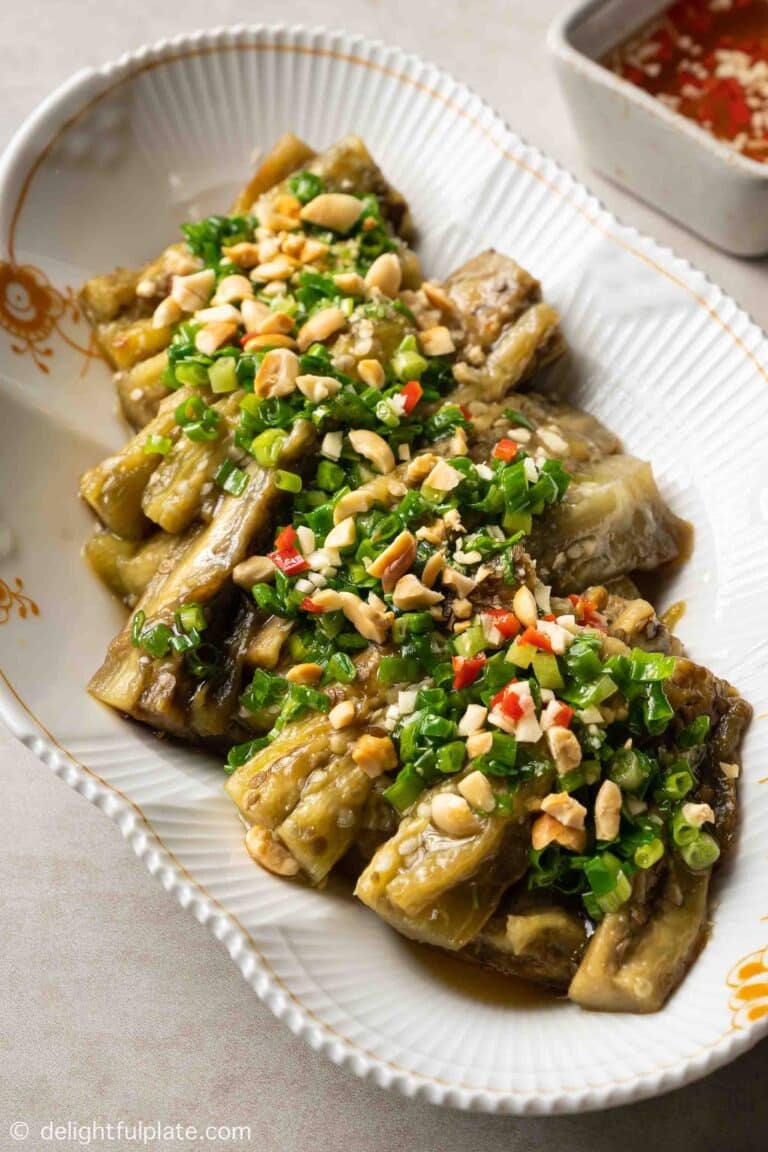

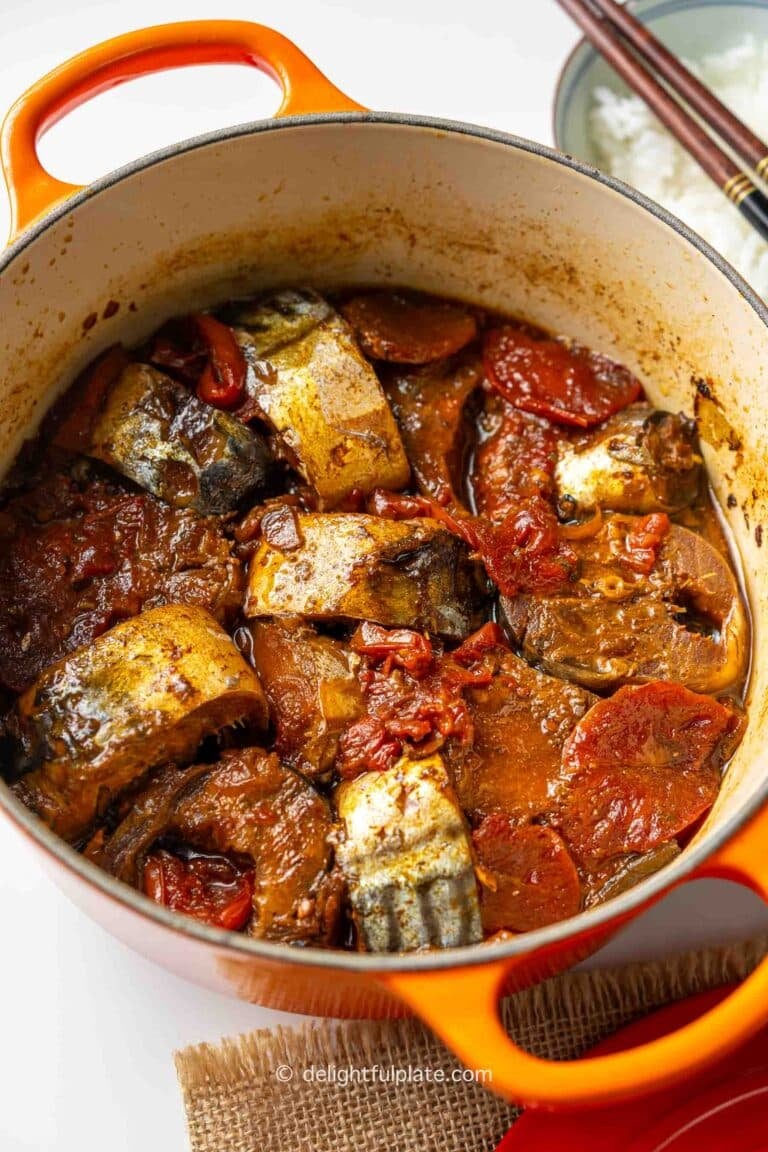

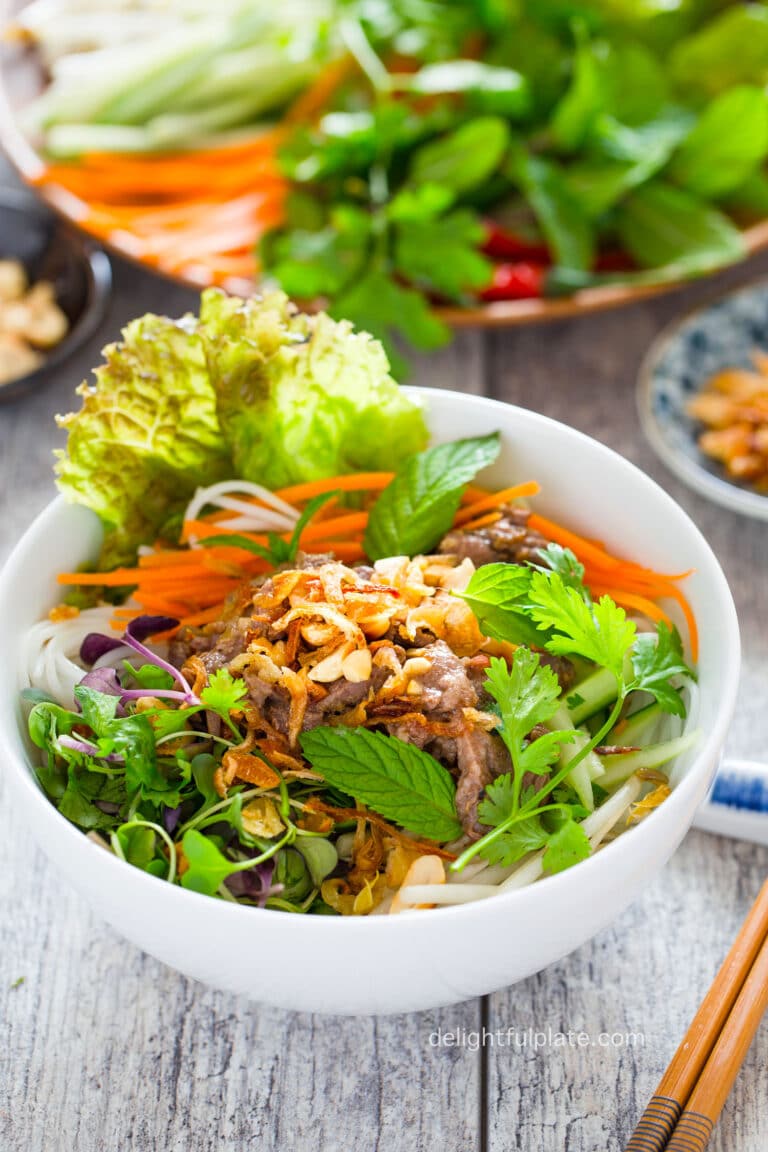
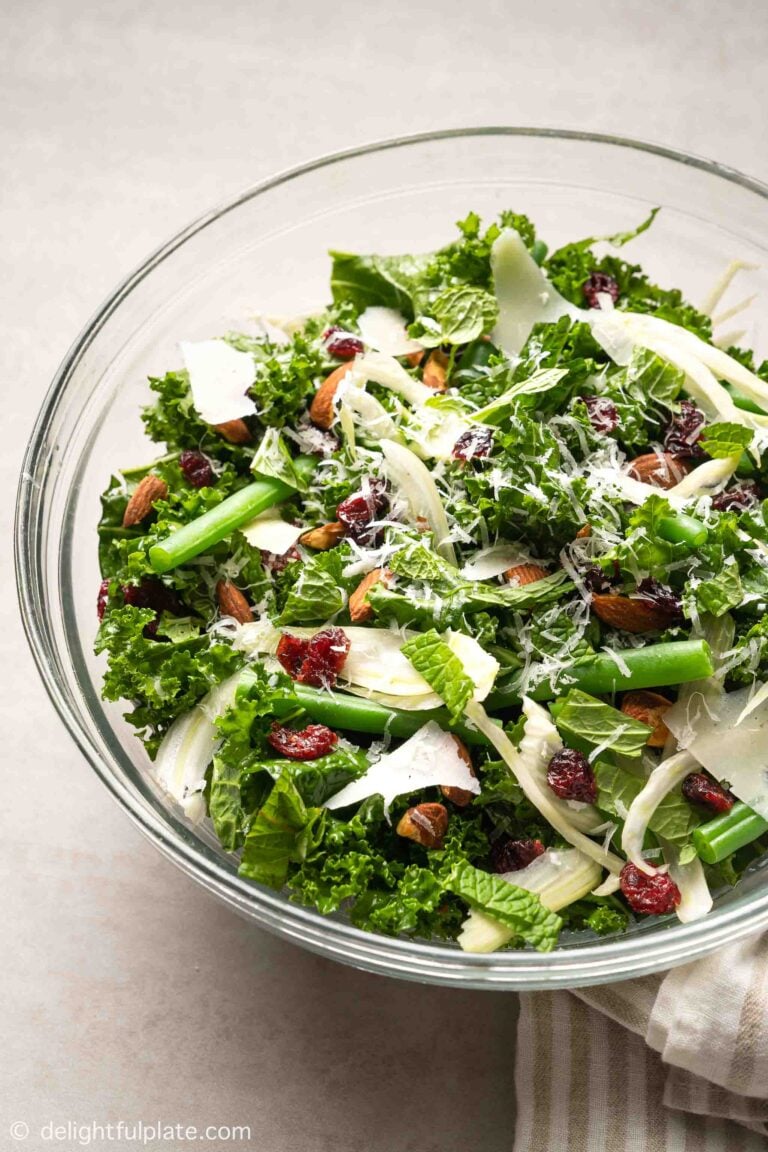
I don’t usually crave viet dishes (as a viet person) but this is my first tết alone. Half the family flew to Vietnam to celebrate there, and this is the first year we’re not together.
My grandma is older and frail now so she no longer cooks. This is the first viet dish I wanted to attempt. I burnt the first round of caramelized sugar and after trying again and throwing in the pork, it immediately smelled like home and nostalgia and I cried LOL.
I’m happy to have found this recipe first because it tastes exactly how my grandma used to make it ♡